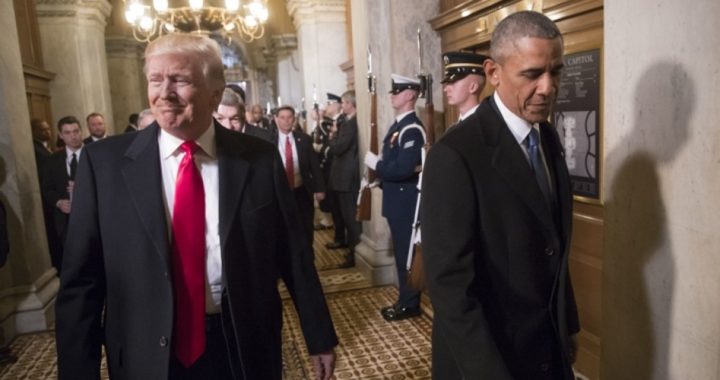
Divided we stand (temporarily)? This appears the attitude of many Americans, with a recent survey showing that a record number of us consider our country more divided than ever before.
The poll was conducted by Pew Research Center January 4 to 9 and found that 86 percent of respondents say the country is more divided than in the past — the highest figure since the question was first asked in 2004.
This is no surprise, with the continual and highly visible leftist efforts to protest and undermine the Donald Trump presidency. Also unsurprisingly, the survey “finds little optimism that the country’s political divisions will subside any time soon: 40% expect the country to be about as politically divided in five years as it is today, while 31% think it will be even more divided; just 24% expect divisions to lessen,” writes Pew.
Just prior to Barack Obama taking office in 2009, only 46 percent of Americans described the nation as more politically divided that in the past; this figure began rising quickly, however, and mere months into his term it already was 61 percent.
While Republicans are more optimistic than Democrats that the country will be less divided five years hence, only 36 percent of them actually feel that way, versus 16 percent for Democrats. There is a rare point of agreement, though: “Comparable majorities of Democrats and Democratic leaners (88%) and Republicans and Republican leaners (84%) say the country is more divided these days than in the past,” reports Pew.
Of course, this poll measures only perception, but in this case perception is reality. Whereas medieval Europeans agreed on “what really matters,” as G.K. Chesterton put it — and where in earlier times even Americans had similar conceptions of virtue — today we disagree on fundamental matters.
It’s not just that you like potato and I like potahto, as the old song says, or that we disagree on having white bread or whole wheat in the school lunch program. It’s not even that we just part company on how best to help the poor, via private or government action. We disagree on “First Things,” last things, and everything in-between. As I wrote last year:
We’re divided over …life, marriage, sexuality, sex itself (the “transgender” agenda), internationalism vs. nationalism, etc. Is marriage only between a man and woman? Are there even such things as “man” and “woman,” or is it all a matter of “identity”? Should we have a “borderless” world, as Hillary Clinton advocated in a speech, or Trump’s wall? Are the Founding Fathers visionaries to be adored or oppressors to be abhorred? Such divisions can’t be glossed over or assuaged by singing “Kumbaya.”
This ideological balkanization is accompanied by the racial, ethnic, religious, and sexual variety. Hyphenation is rife, with too many today identifying themselves as a -American. There are all manner and form of related special-interest groups, from La Raza to the NAACP to CAIR to the Anti-Defamation League to GLAAD, and every politically correct one has pandering politicians doing its bidding. We’re pressing one for English on our phones (and perhaps two for English in the future?) and censoring ourselves in our speech for fear of “offending” some of the -Americans. We’re also now accosted with racial demonization masquerading as “white-privilege theory.”
We’re not just divided — we’re fractured.
Of course, this is inevitable when a civilization ceases believing in Truth (absolute by definition), as we have, and then falls victim to what follows from this: that everything is relative and, therefore, it’s “Whatever works for you.” For when 320 million people are all walking to the beat of different drummers, created is a very discordant tune, indeed.
Photo: AP Images



